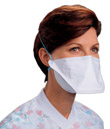A Washington state skilled nursing facility at the center of the United States’ coronavirus outbreak could be facing additional scrutiny from the federal government. This is occurring while providers are dealing with supply shortages and the American Health Care Association called off its conference this week.
The Centers for Medicare & Medicaid Services is sending inspectors to the Life Care Center of Kirkland to investigate what sparked the coronavirus outbreak in the facility and if it properly followed federal infection control guidelines, KIRO-TV reported. Experts with the Centers for Disease Control and Prevention will also be on hand.
The facility has already been working on-site with representatives from the King County Health Department, Washington State Department of Public Health and the CDC during the outbreak, according to a statement released last week by Beecher Hunter, president of Life Care Centers of America.
“Current residents and associates continue to be monitored closely. Associates are screened prior to beginning work and upon leaving with a specific screening protocol. Any associate who exhibits symptoms is self-quarantined at home,” Hunter wrote.
He added that the company is “grieving with families who have lost loved ones.”
Overall, there were more than 540 confirmed cases in the United States as of Sunday evening — along with 21 deaths, according to national media reports.
Supply shortages, workforce challenges

Meanwhile, providers throughout the United States are struggling with supply shortages and workforce challenges during the coronavirus outbreak, according to David Gifford, M.D., chief medical officer for the American Health Care Association.
The association has been directing providers to reach out to their local hospitals, state and county health departments and other nearby facilities regarding any supply shortages and demands increase.
He also explained that some providers, particularly those that don’t participate in the Nurse Licensure Compact, are dealing with staffing challenges. The compact allows nurses to practice from state-to-state without having to get additional licenses.
“States that don’t participate in the compact can run into problems where you have to go in and get a new license, and that new licensing process can take time. We have seen a little bit of that in Washington state because [it’s] not a compact state,” Gifford explained during a Friday call.
Thirty states are currently a part of the nurse licensure compact, according to the National Council of State Boards of Nursing, Inc. Legislation regarding the compact is currently pending in Washington state.
He added, however, that most workers “want to come in” and help.
“We have not heard and seen where staff are just afraid and don’t want to come into work,” Gifford said. “The individuals who work in nursing facilities really care deeply about the elderly. They treat them like their family.”
The key to addressing workforce concerns is to expand testing and ensuring nursing home residents and staff have first priority as test kits become more widely available, he noted.
“So that we can help get staff back into the buildings quickly and that we can also take individuals out of contact precaution so we can preserve the supplies for those that need it the most,” Gifford said.
Conference cancellations
In related news, several industry events have been canceled in wake of the coronavirus outbreak in the U.S.
AHCA / National Center for Assisted Living announced Friday that it’s canceling the 2020 Quality Summit and Independent Owner Conference due to the coronavirus outbreak. It was set for this week in Texas and was expected to have about 500 attendees.
“We felt the risk of anyone potentially catching COVID-19 and bringing it back to their facilities — given its devastating nature when it gets into a facility — we felt it was in the best interest for putting the patients first and canceling that meeting,” Gifford said.
The healthcare technology conference, HIMSS, was also canceled for the first time in 50 years.





